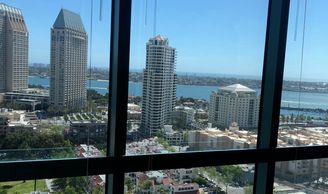A concussion may not be immediately obvious after a collision.
A concussion is considered a type of mild traumatic brain injury (TBI). This injury can happen when the head experiences a blow or in the event where your head and your brain shakes quickly from side to side due to a significant impact on the head. Most people who have a heard of concussion believe that it happens to a boxer after he or she is given a blow to the head. People also believe that children may experience this type of injury when they fall off the bed. However, concussion refers to a variety of traumatic brain injuries. Minor concussions have minimal or no symptoms, while others have a dreadful experience. Concussion also is referred to as mild traumatic head injury and is a physical trauma of the brain caused by a blow to the head.
Causes of concussions
Concussion may seem minor but affects approximately 2 million people across the world each year. Although most of these people achieve full recovery, it is an unpleasant experience and the brain needs time to recover. In the process of concussion, the brain hits the skull causing the brain to swell and changes how it works. Other symptoms include a brain bleed.
What causes a concussion?
- Falls including falls off bicycles, downstairs, and off the bed.
- Accidents; car, boating, and motorcycle
- Sporting accidents; football, boxing, and other sports that require contact
- Violence
Signs and symptoms of concussions
A sudden blow to the head is the most obvious sign of a concussion. Injuries to the head, whether mild or severe, require prompt medical attention, primarily when the injury is associated with swelling or other neurological symptoms. There might be no immediate symptom of concussion. Therefore, the absence of symptoms should not suggest a lack of concussion. Head injuries should be treated as concussion until doctors verify otherwise.
Immediate symptoms of concussion
- Instance headache
- An individual may experience dizziness or inability to concentrate
- Loss of consciousness even for a few seconds.
- Swollen site of injury
- An individual may become sensitive to light, experience blurred vision, or see lights or spots.
- A change in mood, personality, and behavior
- Confusion
- Inability to recall what happened that led to the event. Commonly referred to as post-traumatic amnesia.
- Seemingly drunk and incoherent speech.
Concussion in children may result in emotional dysregulation, tantrums, and behavior regression. Symptoms of concussions vary. Doctors may diagnose you with a concussion, even though you do not show all the signs. Symptoms may also vary as time goes by.
Treatment for concussion
Doctors use a variety of approaches to diagnose a concussion. These methods may include the examination of the site of the injury. They could also include conducting an assessment of symptoms experienced, using the Glasgow coma scale, and using brain imagining scans like MRI to determine the extent of the concussion. Most concussions are not diagnosed because they are mild, and most people who experienced head injuries do not get medical attention.
There is no specific standard to diagnose a concussion. As a result, there are significant disagreements among medical professions. Some situations may lead doctors to deny the presence of a concussion. These may include concussions after a prison beating and when a highly valued athlete gets injured while on the field and is demanding to get back to the game.
There is no cure for concussion. When a concussion is suspected, the doctor must monitor the patient for symptoms that might get worse for several hours. There is a debate on whether a patient with a concussion should or should not stay awake. However, most doctors recommend that the patient remains ways up to 24 hours after experiencing an event that caused the concussion. Doctors treat symptoms as they occur. Therefore, diagnosis changes based on the change in symptoms, in the event of a brain bleed or severe symptoms, the patient may need urgent surgical treatment.
Prognosis for concussions
Most people recover from a concussion, even without medical intervention. However, they may have prolonged symptoms, especially when the patient experiences another concussion few months after the original one. Professional athletes exposed to head blows are at higher risks of continued symptoms of concussion. However, symptoms often cease with ten days, but a small number of people may suffer from a post-concussion syndrome where the patient experiences a range of symptoms, including:
- Irritability, anger, or changes in mental health.
- Dizziness
- Insomnia
- Sensitivity to noise and light
- Depression and anxiety
- Changes in vision
Doctors have started to build their understanding of the long-lasting effects of concussion and other symptoms that may contribute towards post-concussive syndrome.






